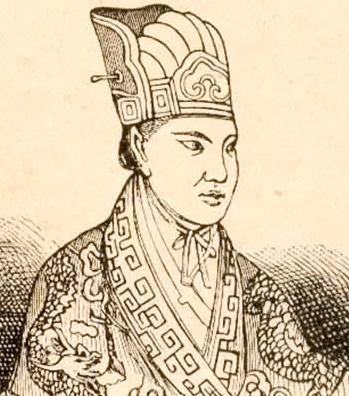Cross posted at http://blogs.sun.com/syw
A few thousand years ago, rulers pondered on how to govern. Citizens were not quite literate. The society was tiered. A legal system seemed futile: first they need to learn the laws, then must build an enforcement structure. But most importantly, the ruling class did not wish to be subject to the same laws as the commoners. What to do?
The Church was the answer. It has the God-given authority to define morality and the rituals of worshipping. Church became the perfect partner with the government: one controlled behavior and the other military and resources. Governance became easy.

In China, way before Christ, Confucius taught his philosophy on social protocols. Social behaviors — rules of interaction — must accord to the relative labeling: ruler v. ruled, senior v. junior, husband v. wife, etc. Simply put, the moment one acquired a label, the proper behavior rules apply. A person, for example, behaves differently as the son, the boss, the guard, the student, the brother, etc. Titles rule.
Kings in China found this so suitable for governing and put resources behind it. China became a Confucian state. Religions are for faith or philosophy, not ethics or morality.
After the Industrial Revolution, machine replaced human and became the main means of production. New rules challenged Church on its authority on people’s lives: it is not about right and wrong anymore, it is about money. Church felt the pressure to modify rituals to avoid contradiction with the economy: only spiritual rituals are their domain. But which rituals are divine and which are social? Is birth control a matter of faith? Would I go to hell if I eat pork? If I accept Him as my savior, does it matter that I murdered, raped, or betrayed?
The mainstream modern churches, at least in the USA, became social clubs of similarly valued or opined. When one’s value changes, one also change church. Several religions or denominations, however, insist on strict ritual adherence, also known as behavior control, and frequently run into trouble: think Jonestown, Waco, and Texas polygamists.
In 1850s, HONG XiuQuan (洪秀全) started a farmer riot using religion as an organization tool. He assumed divine position and organized his kingdom against the government. The riot went all the way to Beijing and almost tumbled the Qing dynasty. Imagine Jonestown the size of half the country, or the state of Utah passing a constitution contradicting the USA one. Chinese rulers since heeded the lessons and viewed organized religions with suspicion.
Faith is about belief and respect. Religion is about social behavior via organization, morality, and rituals. Government is for the control and distribution of resources. These affect everyone, God believer or not. That’s why confrontations and conflicts will never end. Everyone, just chill.
åŒæ¥ä¸Šç½‘于http://blogs.sun.com/syw_zh
早在数åƒå¹´å‰ï¼Œç»Ÿæ²»è€…就开始æ€ç´¢å¦‚何治ç†å›½å®¶ã€‚那时的国民尚未开化,社会ç‰çº§åˆ¶åº¦æ£®ä¸¥ï¼Œå› 而法律体系看起æ¥å¹¶ä¸é€‚ç”¨â€”â€”å› ä¸ºç»Ÿæ²»è€…é¦–å…ˆè¦ç ”究法律,然åŽå¿…须建立执法机构。而最é‡è¦çš„是,统治者并ä¸æ„¿æ„和平民éµå®ˆåŒæ ·çš„法律。那该怎么办呢?
æ•™å ‚ç»™å‡ºäº†ç”案。是上天决定了神æƒå´‡æ‹œçš„é“å¾·æ€§å’Œç¤¼ä»ªæ€§ã€‚æ•™å ‚åˆ™æˆä¸ºäº†æ”¿åºœçš„完美æ档——å‰è€…控制人们的行为,åŽè€…控制军事力é‡å’Œå„ç§èµ„æºã€‚è¿™æ ·ä¸€æ¥ï¼Œå¯¹å›½æ°‘的统治就å˜å¾—容易了。
基ç£æ•™è¿˜æ²¡æœ‰åœ¨è¥¿æ–¹è¯žç”Ÿä¹‹å‰ï¼Œåœ¨ä¸å›½ï¼Œå”ååŠå…¶å„’家哲å¦å°±å·²æˆä¸ºç¤¾ä¼šå‡†åˆ™ã€‚社会行为应当éµå¾ªä¸‰çº²äº”常,臣事å›ã€å¹¼äº‹é•¿ã€å¦»äº‹å¤«ï¼Œè¯¸å¦‚æ¤ç±»ã€‚简而言之,一旦确立了æŸç§ä¼¦ç†å…³ç³»ï¼Œç›¸åº”çš„è¡Œä¸ºå‡†åˆ™ä¹Ÿå°±ç¡®ç«‹äº†ã€‚ä¾‹å¦‚ï¼Œä¸€ä¸ªäººï¼Œå› å…¶å„¿åã€ä¸Šå¸ã€å«å£«ã€å¦ç”Ÿã€å…„弟ç‰èº«ä»½çš„ä¸åŒï¼Œè€Œéœ€è¦éµå®ˆä¸åŒçš„行为准则。
ä¸å›½å¤ä»£å¸çŽ‹å‘现儒家哲å¦éžå¸¸é€‚åˆç»Ÿæ²»å›½æ°‘和控制资æºï¼Œä¸å›½ç”±æ¤æˆä¸ºå¥‰è¡Œå„’å¦çš„国度。而宗教则仅é™äºŽä¿¡ä»°æˆ–哲å¦ï¼Œè€Œéžå…³ä¼¦ç†é“德。
西方工业é©å‘½ä¹‹åŽï¼Œæœºå™¨å–代人力æˆä¸ºä¸»è¦çš„生产工具。新的规则挑战ç€æ•™å ‚在人民生活ä¸çš„æƒå¨åœ°ä½â€”â€”è¿™æ— å…³å¯¹é”™ï¼Œå´å…³ä¹Žé‡‘é’±ã€‚æ•™å ‚ä¹Ÿæ„Ÿå—到è¦é¿å…与ç»æµŽå‘展å‘生冲çªï¼Œå¿…须改å˜å®—教仪å¼â€”—åªæœ‰ç²¾ç¥žä»ªå¼æ‰æ˜¯ä»–们的领域。然而究竟哪些宗教仪å¼æ˜¯ç¥žåœ£çš„,哪些仪å¼æ˜¯ä¸–俗的呢?出身是å¦å†³å®šä¿¡ä»°ï¼Ÿæˆ‘åƒäº†çŒªè‚‰æ˜¯å¦ä¼šä¸‹åœ°ç‹±ï¼Ÿå¦‚果我将他视为救世主,å³ä½¿æ€äººã€å¼ºæš´æˆ–是å›å›½ï¼Œè¿˜èƒ½æ°¸ç”Ÿï¼Ÿ
至少在美国,主æµçš„çŽ°ä»£æ•™å ‚å·²æˆä¸ºå…·æœ‰ç›¸åŒä»·å€¼è§‚或想法的人们的社交俱ä¹éƒ¨ã€‚当一个人的价值观改å˜äº†ï¼Œä»–也就会转而去å¦å¤–çš„æ•™å ‚ã€‚å½“ç„¶ï¼Œè¿˜æœ‰ä¸€äº›å®—æ•™æˆ–æ•™æ´¾åšæŒå›ºå®ˆå®—教仪å¼ï¼Œå¯¹è¡Œä¸ºå®žè¡Œä¸¥æ ¼æŽ§åˆ¶ï¼Œå¹¶é¢‘ç¹åˆ¶é€ 惨案——例如ç¼æ–¯é•‡äº‹ä»¶ã€éŸ¦ç§‘惨案ã€å¾·å·žå¤šå¦»åˆ¶æ¡ˆä»¶ã€‚

在19世纪50年代,洪秀全领导的太平天国起义就将宗教作为一ç§ç»„织工具。他自称天授神æƒï¼Œè‡ªç«‹ä¸ºçŽ‹ï¼Œä¸Žæ¸…æ”¿åºœå¯¹ç«‹ã€‚èµ·ä¹‰å†›ä¸€è·¯æ”»åˆ°åŒ—äº¬ï¼Œå‡ ä¹Žé¢ è¦†äº†æ»¡æ¸…çŽ‹æœã€‚那情形就如åŒç¼æ–¯é•‡è¦†ç›–了åŠä¸ªç¾Žå›½ï¼Œæˆ–是尤他州通过了一项与美国宪法相抵触的法律。ä¸å›½çš„统治者从ä¸å¸å–了深刻的教è®ï¼Œå¹¶å¯¹æœ‰ç»„织的宗教活动ä¿æŒé«˜åº¦è¦æƒ•ã€‚
信仰与信念和尊敬有关,而宗教则是通过组织ã€é“德和礼仪所体现出æ¥çš„社会行为,政府的作用是控制和é…置资æºã€‚æ— è®ºæ˜¯ä¸æ˜¯ä¸Šå¸çš„信徒,æ¯ä¸€ä¸ªäººéƒ½ä¼šå—到这三方é¢çš„å½±å“。这就是为什么对抗和冲çªæ°¸è¿œéƒ½ä¸ä¼šåœæ¢ã€‚所以,大伙们,退一æ¥å§ã€‚
